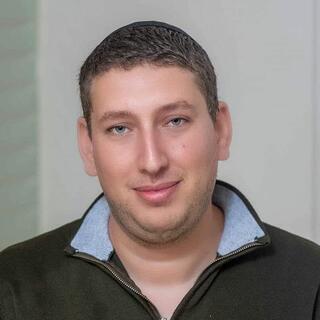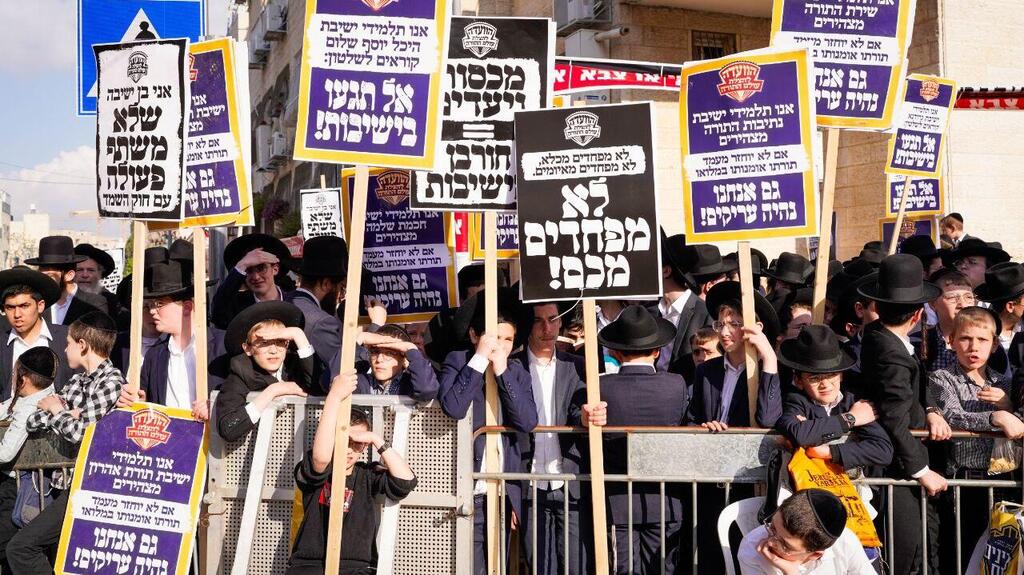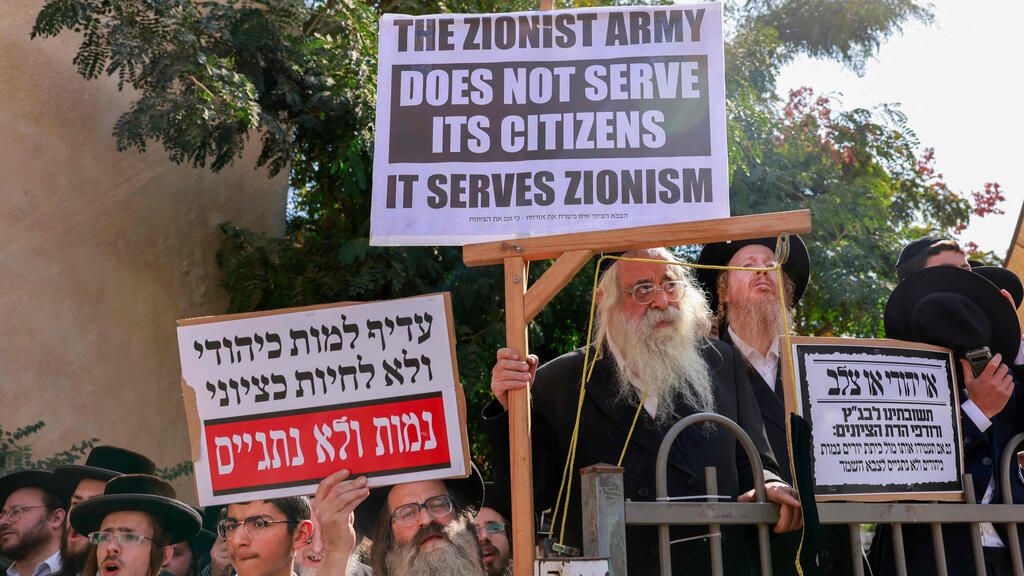Getting your Trinity Audio player ready...
"The reason we don't go to the army," a Haredi friend who is even considered 'modern' told me, "is the same reason you don't fly to live in Guatemala for three years."
"What?!" I wondered and he replied: "Exactly. That's the point. Your bewilderment now is the same astonishment that a Haredi guy would have if he received a draft notice. Most Israelis who come to the military at the age of 18, 19 or 20 saw their brothers, their neighbors and their friends do the same thing before them, it's part of the accepted and normal path. For a Haredi - it's foreign to him and very far from him."
Rabbi Yitzhak Yosef's statement that "even someone who is idle shouldn't join the army" does not come in a vacuum, it was preceded by the declarations of the spiritual leaders of the Lithuanian school of thought - Rabbi Dov Lando, who said that a yeshiva is forbidden even from negotiating with the army over drafting its students, and Rabbi Moshe Hillel Hirsch, who stated that it is a mitzvah to be deserters.
The Iron Swords War, which has stretched the IDF's manpower to the limit, of both regular soldiers and reservists, seemed in its first weeks to be the beginning of a change in the ultra-Orthodox public on the issue of conscription and sharing in the security burden, but it soon became clear that the avoidance of participation in defending the country's borders was rooted much more deeply in the sector that sees Torah study as its contribution to the country's security. Few of the first conscription orders sent by the IDF resulted in the students coming to the conscription office, and the leading rabbis set as a red line refusing any kind of conscription.
The goals of the Haredi public in Israel are to avoid assimilation into Israeli society and to maintain a lifestyle that is entirely, at every age and at every stage, part of the Haredi "Noah's Ark."
The change in Haredi society was not accidental. The spiritual leader of the Haredi community, known as Chazon Ish after the series of books he published, brought an innovation to the Jewish world - a society of learners, a sector in which anyone with academic ability would study in a yeshiva, and in its schools only sacred subjects would be taught, with no secular studies. This idea was born out of the Holocaust, in which entire yeshivahs and communities were wiped out, and came with the aim of replenishing the lack of Torah study and the voice of Torah that had been silenced since the murder of those students.
Alongside this, parents who were very concerned about the change that their children would undergo in the IDF sent to yeshiva even those who did not excel in Torah study. The quotas grew, and for the first time in the life of the Jewish people, entire families began to send all their children to yeshiva, from the oldest to the youngest.
In the early days of the state, Israel's first prime minister David Ben-Gurion set a quota of 400 yeshiva students each year for exemption from the draft at the request of the Haredi leaders. The Haredi sector at that time was less organized than it is today, and significantly smaller. And the veto on military service by the Haredim was not so absolute. But frameworks for combining Torah study and maintaining a religious lifestyle with military service also were not common, and many of the recruits who came from observant homes were unable to maintain their level of religious observance in the IDF.
The Haredi lifestyle centers on conservatism and strict warnings against external content, and is based on building walls between the Haredi world and everything beyond those fences. Starting with education and culture, and continuing with food, media consumption, clothing style and housing – everything is conducted according to what is dictated from above.
Get the Ynetnews app on your smartphone: Google Play: https://bit.ly/4eJ37pE | Apple App Store: https://bit.ly/3ZL7iNv
The Haredim are happy to be part of the State of Israel, for the most part. They volunteer in countless help organizations: Yad Sarah, Zichron Menachem, Ezer Mitzion, ZAKA, United Hatzalah, Yedidim and organizations to help patients in hospitals. But all of these are under the seal of approval of the Haredi public, with the approval and consent of the rabbis and educators.
Military service will be a departure from the frameworks in which the word of the rabbis is the supreme authority – into a system that also takes the utmost care of the needs of the ultra-Orthodox soldier and ensures units are adapted to his lifestyle. Ultimately, it is the secular (or not-enough-Orthodox) General Staff order that determines this.
The Sephardic public, which has always been more open, has recently been speaking up against the pronouncements of the Lithuanians and the Hasidim. He says that the army is leaning more heavily on the Sephardic Hasidic community to send their sons to the IDF than on the Ashkenazim.
The thought of moving to drafting their sons keeps every Haredi mother awake at night, thinking about the lack of control over the topics of conversation, leisure hours, cultural consumption and entertainment habits of the young man who will be drafted.
This is the main obstacle to expanding enlistment and bringing in more young Haredi soldiers, and hence this is the IDF's main challenge in building trust with the Haredi public and creating a precise outline that will address the concerns.




